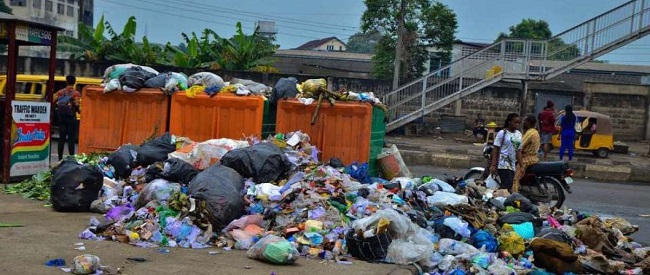The National Coordinator, Clean-Up Nigeria (CUN), Prince Ene Owoh, says a recent performance indicator result shows that over 175 million Nigerians live in unclean environments.

As a result, he called for increased funding on sanitation as well as improved working conditions for sanitary workers.
Owoh made the disclosure on Thursday, November 15, 2018 in Abuja during the presentation of the State of Nation’s Cleanliness Performance Rating Index for all states, capitals, cities and geo-political zones of Nigeria for 2018.
He said the rating was carried out by a 15-man National Technical Working Committee for the Conference of Green Crystal Awards (GCA) pursuant to the silver jubilee celebration of Clean-Up Nigeria.
The National Population Commission (NPC) had in April put Nigeria’s current population at 198 million.
Owoh said the report presented indicated that funding by state and local government councils were inadequate and amounted to nothing in comparison with the work at hand.
“The performance indicators and the results of the report showed over 175 million Nigerians live in unclean environments.
“The condition and wages of sanitary workers should be improved, and medical allowances given for their regular health check-ups, at least twice yearly.
“There has also been steady and increased deterioration of the health of sanitary workers in Nigeria by 75 per cent,” he said.
Owoh said a way of improving on sanitation, government should be to tackle the dangers of open defecation by building more public toilets and baths nationwide.
“The sanitation and hygiene practices of the people in over 33 states and the FCT still leaves much to be desired which calls for serious management on the part of government, individuals and groups.
“There has been prevalence of sanitation related diseases from 20-35 different diseases in Nigeria today but steady decline in the procurement of sanitation management equipment,” said Owoh.
He said additional emphasis should also be given to the informal sectors engaged in waste recycling and re-use enterprise as a means of generating employment.
He called on government at all levels to set up and enforce the regular clean-up of drains with renewed energy, as 93 per cent of the states have seriously neglected the cleaning of gutters and drains, as well as vegetation control.
The Nation’s Performance Rating Index Report adjudged the state of Akwa Ibom as the cleanest state for 2018, while Abuja and Cross River states came second and third respectively.
NAN also reports that the performance indicators used included street cleanliness, vegetation and drain control, waste management services, public opinion, knowledge, attitude and practice of hygiene and sanitation of the people.
By Ebere Agozie
